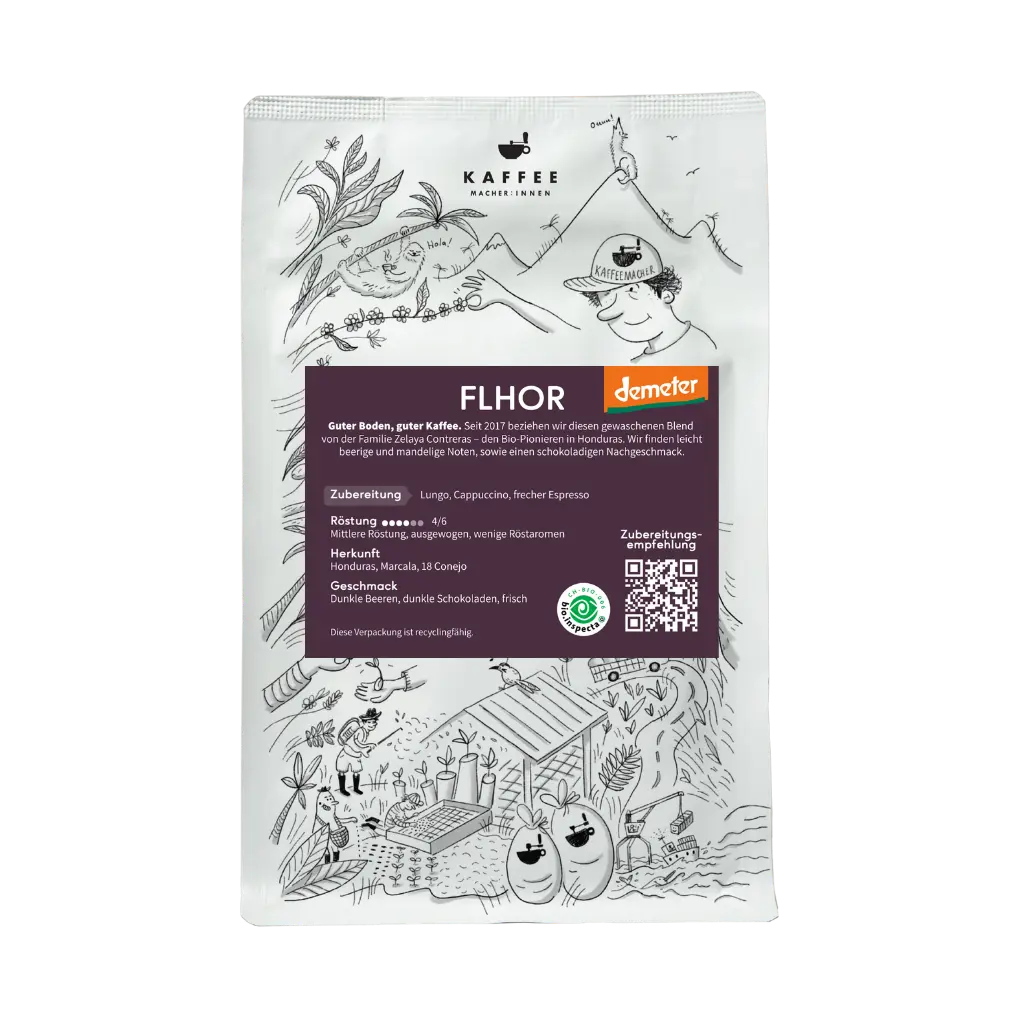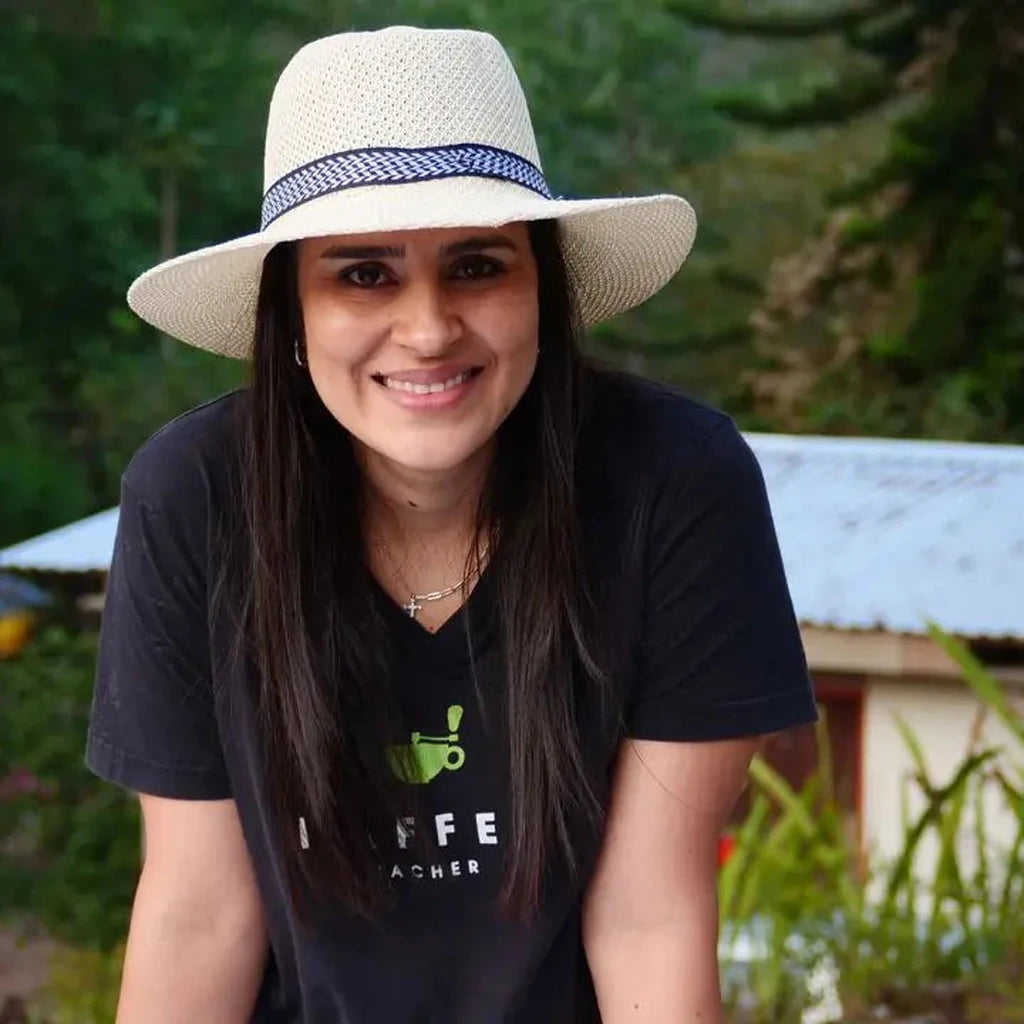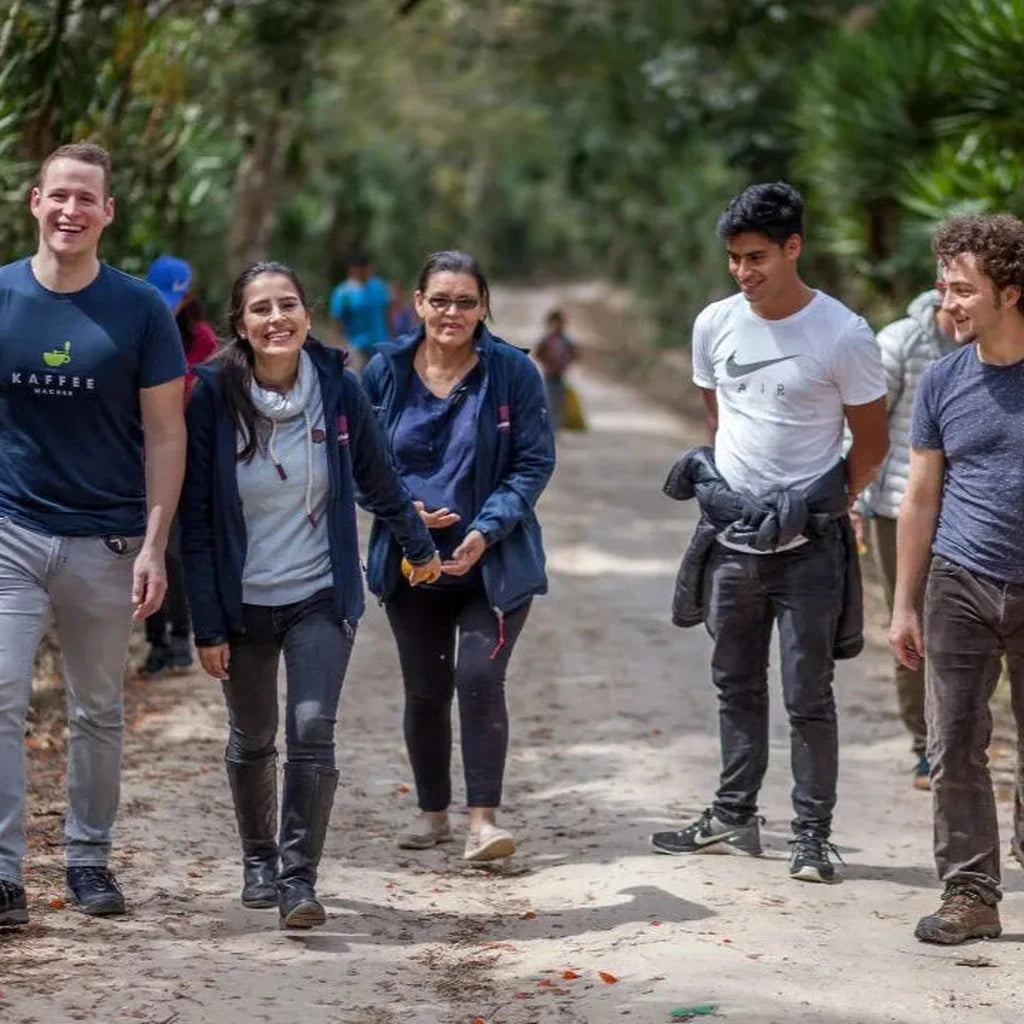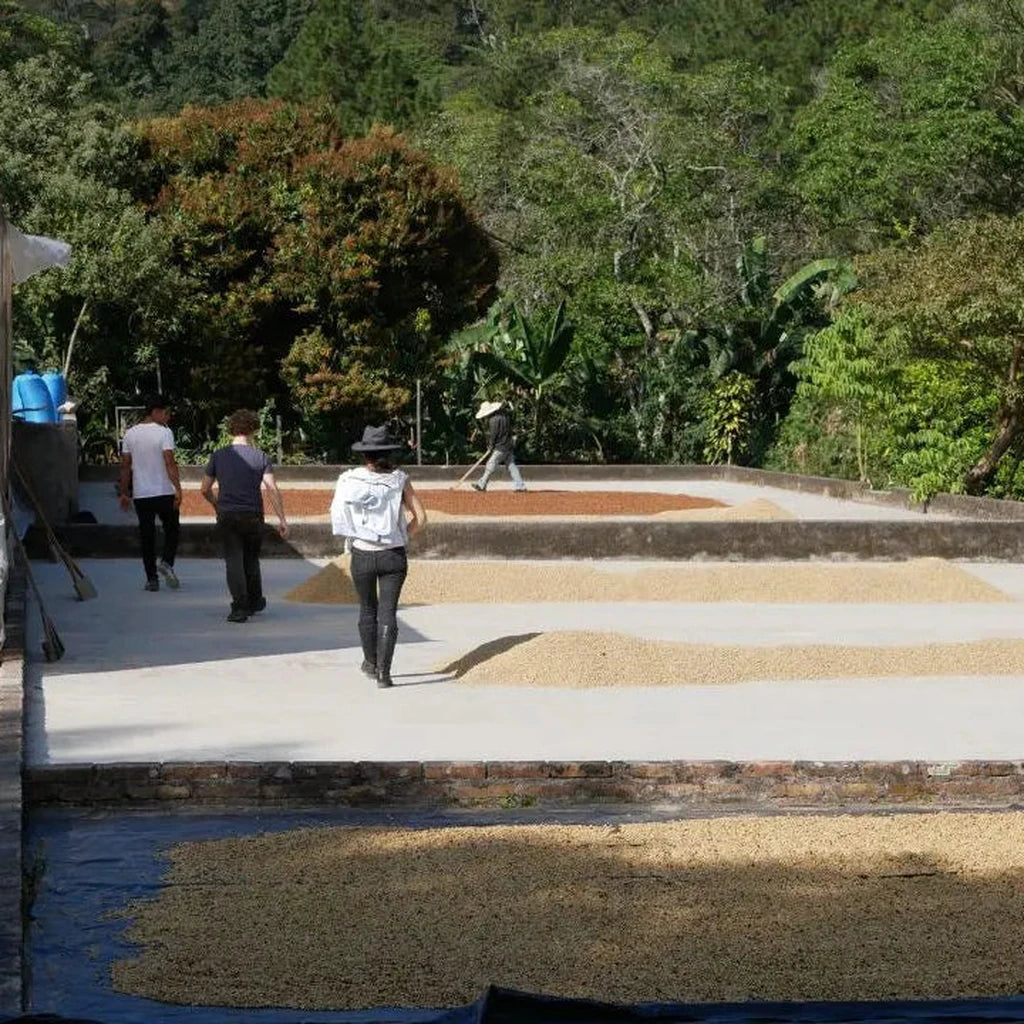




Flhor, Café Crème from Honduras
Flhor our Café Crème from Honduras
Our Café Crème from our Basel Cafés, the Café Frühling and the Bahnhofscafe. Perfect for long cups. A full body, floral and dark chocolate notes, as well as a fresh acidity make this coffee a good breakfast companion, lunch coffee or a good match for a piece of cake in the afternoon. Always fits.
Flhor - coffee information
Roasted for: Café Crème, Moka Pot and cheeky espresso
Origin: Honduras, Marcala La Paz
Producers: 18 Conejo
Varieties: Catuai, Typica, Bourbon, 100% Arabica
Post-harvest process: depulped and washed
Certification: Demeter - biodynamically produced (CH-BIO-006)
All of our coffees are sold as whole beans.
Two preparation variants for our Flhor
As Café Crème / Lungo - our gastronomic recipe:
Pour 15g of ground coffee into a double sieve (capacity around 18g) and extract 120ml into the cup within 20 seconds.
This is how we make a lungo/café crème in our cafés.
Note: Unfortunately, this recipe does not work with La Marzocco portafilter machines, for example, because the so-called flow rate is too low. Flow rate refers to the water flow rate.
As a cheeky, unusual espresso

Why does Flhor taste the way it does?
The family farm is located at around 1700 m above sea level. The coffee grows more slowly in the cool climate and develops the citrus acidity that is characteristic of the Marcala region. After picking, the cherries are pulped immediately, fermented dry in the fermentation tank and washed after almost 20 hours. Fermentation dissolves the pectin layer surrounding the coffee seeds. It is then regularly dried and turned on a patio in Marcala.
Tell me more about Flhor
Flhor represents the next generation of the Zelaya Contreras family, which was one of the organic pioneers in coffee cultivation in Honduras 30 years ago. The focus of 18 Conejo's work is soil health. The better the soil, the more resilient the coffee plant. We support agricultural approaches that work regeneratively and understand coffee production holistically. This also includes our own production of fertilizer, which makes producers less dependent on market fluctuations. Small producers in particular need a broad toolbox in order to be able to respond to the constant challenges in coffee cultivation. Whether organic, biodynamic, regenerative, or a mixture of different approaches - we support everything that strengthens coffee producers and gives them the power to act. We have been working with Flhor and her family since 2017 and roasting their biodynamically produced coffee.
Read coffee details at Beanconqueror




